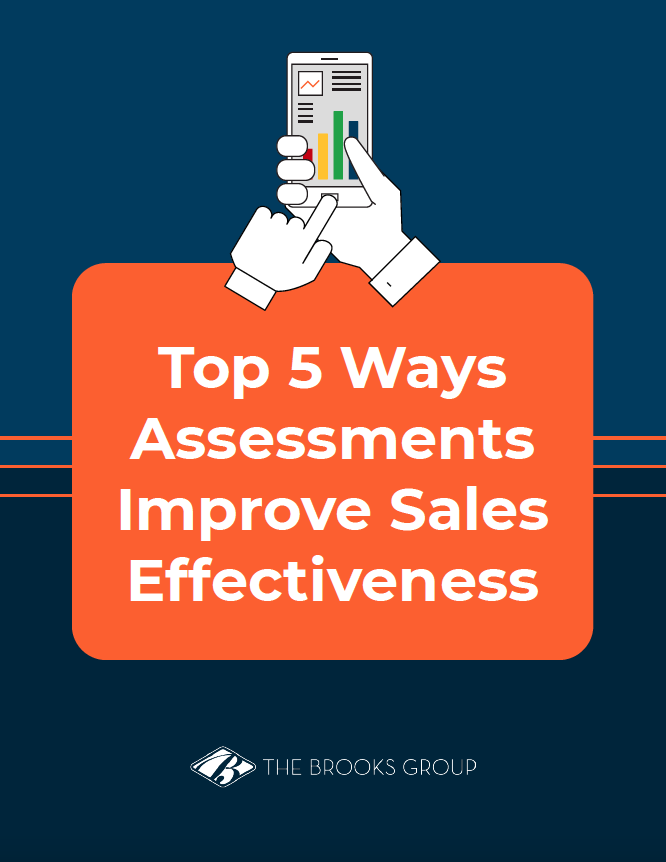There have been seismic shifts in the sales profession over the past five years, making the B2B buying process much more complex. Your sales organization should also evolve. It’s time to ensure your team has the sales competencies it needs to be successful.
These statistics show how much selling has changed:
- 92% of B2B buyers prefer virtual sales interactions.
- The average B2B buyer journey today involves between 11 and 20 stakeholders.
- The average buying cycle is now 11 months.
- B2B buyers spend 70% of their buying journey doing their own research before talking to vendors.
Your sales professionals face a longer, more involved, asynchronous selling process. This requires consultative selling strategies. Both new hires and experienced sellers have got to level up their game or lose out to competitors. They need new skills and sales core competencies to navigate complexity and guide buyers from prospect to customer.
What Are Sales Competencies?
Sales competencies are often referred to as soft skills or personal skills. While they can be more difficult to measure than hard skills, competencies have a big impact on a candidate’s ability to achieve success in a sales position.
Some examples of sales competency categories include accountability for others, an empathetic outlook, and the ability to plan and organize.
We often think of personal skills as the “professional polish” of a sales rep: Can the sales rep accurately evaluate a situation and make the best decision, or do they struggle to assess situations and miscommunicate with internal and external customers?
The difference often comes down to their sales competencies or personal skills.
Core Sales Competencies
Accountability for Others
Empathetic Outlook
Planning and Organization
Conceptual Thinking
Conflict Management
Continuous Learning
Customer Focus
Decision-Making
Developing Others
Diplomacy & Tact
Flexibility
Goal Achievement
Influencing Others
Interpersonal Skills
Leading Others
Objective Listening
Personal Accountability
Problem Solving
Resiliency
Results Orientation
Self-Management
Self-Starting Ability
Teamwork
Define Best-Fit Candidates
Research shows that, to gain traction in today’s marketplace, a willingness to learn and great communication skills are just as important as foundational sales knowledge.
Using an intentional sales hiring strategy can help you find the best candidates with the highest potential for success. This begins by identifying and developing the sales competencies of new hires.
Your organization can determine the specific personality traits or attributes that are critical to success in a particular position and create a job benchmark for the role.
Developing a position benchmark of the ideal candidate profile clearly defines the role and allows you to assess a candidate’s fit more easily. A job benchmark should include competencies that are “must-haves” when evaluating new talent and any other fundamentals that contribute to high sales performance.
Job benchmarking alleviates the guesswork involved in the hiring process by providing objective measurements and identifying the candidate most likely to excel in your organization—today and into the future.
Determine Critical Competencies
Every organization and sales position is different. The nuance of each business requires a unique set of behaviors, motivators, and salesperson competencies for success.
Before you begin your search for a sales candidate, sit down with the members of your team who understand the position best. This might include the role’s direct manager, sales leader, or people currently in a similar role.
Come to a consensus on what an ideal candidate looks like—including the core competencies they should possess. These are the skills you should look for in hiring your next high-performing sales professional.
You can then use sales assessments to identify a candidate’s top personal competencies and how well developed they are. A hiring assessment allows you to uncover talents, skills gaps, and areas of development so you can onboard, coach, and train that person appropriately.
A sales rep competency can be more or less important depending on the requirements of the position.
- Do you need a friendly farmer-type or a more aggressive hunter-type?
- Will the salesperson be cold calling or building strategic relationships with high-level contacts?
- Do you expect them to cross-sell and upsell existing accounts or focus on bringing in new business?
Think about the person you need in the role, and take these factors into consideration:
- Your organization’s sales strategy
- Short- and long-term goals
- New challenges or industry disruptors
- Day-to-day selling activities
- Compensation structure
Not every sales role requires every competency. Determining the most critical ones and hiring to match is a best practice for sales organizations that want to grow a team of high performers.
Top 6 Sales Competencies
The Brooks Group has identified six trending competencies for today’s increasingly complex marketplace.
- Planning and Organization: Ability to establish a process and implement systems or procedures
- Results Orientation: Ability to identify actions necessary to complete tasks and obtain results
- Goal Achievement: Ability to set, pursue, and attain achievable goals regardless of obstacles or circumstances
- Flexibility: Ability to modify, respond to, and integrate change with minimal personal resistance
- Data Analysis: Ability to read and analyze data to understand closed-lost deal patterns and drive prospecting efforts
- Customer Focus: Commitment to customer satisfaction
These highly sought-after competencies speak to the need for sales professionals to juggle more in the face of increasingly complex purchasing decisions.
Today’s high-performing sales professionals must be skilled at navigating buying committees with multiple decision-makers and keeping track of it all while maintaining their cool.
Above all, sales professionals must stay focused on the customer and provide value at every interaction. This type of value-based selling is more important now than ever before, and should be something your organization prioritizes.
Core Sales Competencies for Sales Success
You can achieve these goals by hiring candidates who have the skills required for the role as well by as delivering sales training on a consultative sales process.
The key to sourcing top sales talent is figuring out exactly what your open sales position requires for success, selecting a candidate who’s naturally wired for those requirements, and developing their strengths.
Learn More
See how The Brooks Group’s sales assessments can unlock your sales team’s full potential.
White Paper Download
Top 5 Ways Assessments Improve Sales Effectiveness
Assessments are a powerful tool sales leaders can use to understand to hire smarter, coach effectively, retain top performers and ultimately improve sales effectiveness and performance.
This guide outlines the top 5 ways you can use assessments to improve sales effectiveness.




